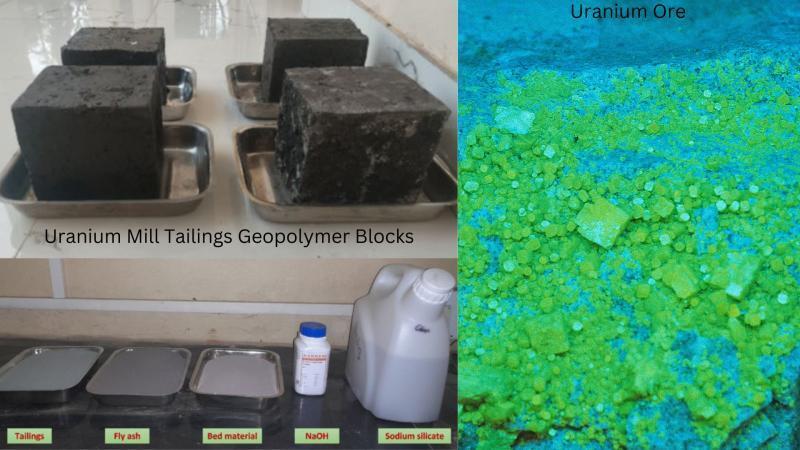
Transforming Waste into Sustainable Building Blocks
The construction industry is one of the most significant contributors to environmental degradation, with the production of building materials accounting for a substantial portion of the world’s energy consumption and carbon emissions. Traditional building materials such as cement, steel, and glass are not only energy-intensive but also have a significant environmental impact. However, researchers at India’s Bhabha Atomic Research Centre (BARC) are working on a revolutionary solution to transform nuclear waste into sustainable building blocks, providing a promising alternative to traditional construction materials.
The Problem with Nuclear Waste
Nuclear power plants generate a significant amount of radioactive waste, which requires careful management and disposal. The uranium mill tailings, a byproduct of uranium mining and processing, contain radioactive and hazardous materials that pose a significant environmental and health risk if not handled properly. Conventional methods of disposing of nuclear waste, such as storing it in ponds or burying it in landfills, are not only expensive but also unsustainable.
The Innovative Solution
BARC researchers have developed a unique approach to transform uranium mill tailings into geopolymers, a type of sustainable building material. Geopolymers are a mixture of natural materials, such as clay, silica, and alumina, that are bound together by chemical reactions. The researchers have found that by adding a small amount of radioactive waste to the geopolymers, they can create a strong and durable building material.
The process begins with the collection of uranium mill tailings, which are then mixed with a combination of clay, silica, and alumina. The mixture is then subjected to high temperatures and pressures, causing the materials to react and form a strong and durable polymer. The resulting geopolymers are not only strong and durable but also possess unique properties, such as thermal insulation and soundproofing.
Benefits of Geopolymer Construction
The use of geopolymers as a construction material offers several benefits, including:
- Sustainability: Geopolymers are made from natural materials and do not require the use of fossil fuels or energy-intensive manufacturing processes.
- Durability: Geopolymers are highly resistant to weathering, erosion, and chemical corrosion, making them an ideal material for construction projects that require long-term durability.
- Thermal Insulation: Geopolymers possess excellent thermal insulation properties, making them ideal for building construction projects that require energy-efficient solutions.
- Soundproofing: Geopolymers also possess soundproofing properties, making them suitable for construction projects that require acoustic insulation.
- Radioactive Waste Management: By incorporating uranium mill tailings into the geopolymers, researchers are able to manage radioactive waste in a sustainable and environmentally friendly manner.
Global Implications
The innovative approach developed by BARC researchers has significant implications for the construction industry globally. With the increasing demand for sustainable and environmentally friendly construction materials, geopolymers offer a promising solution. The ability to transform nuclear waste into building materials not only helps manage radioactive waste but also provides a sustainable alternative to traditional building materials.
Conclusion
The transformation of waste into sustainable building blocks is a groundbreaking innovation that has the potential to revolutionize the construction industry. By incorporating uranium mill tailings into geopolymers, researchers at BARC are not only managing radioactive waste but also providing a sustainable alternative to traditional building materials. As the world continues to grapple with the challenges of environmental degradation and sustainable development, the innovative approach developed by BARC researchers offers a promising solution for future construction needs.
Source:






